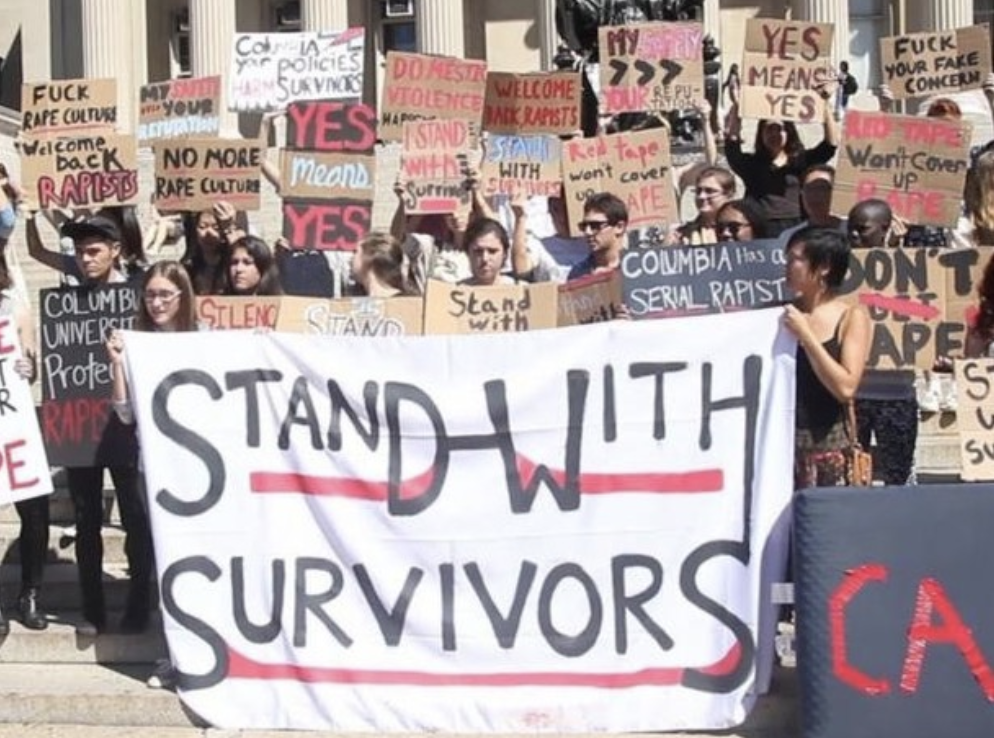The many problems with the Department of Education's new proposed Title IX regulations

On Friday, United States Secretary of Education Betsy DeVos released the Department of Education’s new proposed regulations for Title IX. In September of 2017, DeVos had revoked the Title IX guidance that had been in place under the Obama administration. Those guidelines were based largely on the rights of the accuser, and encouraged schools to deeply investigate reports of sexual assault and harassment on campus. DeVos’ guidelines do the opposite: They protect the accused by putting the burden of proof on sexual assault survivors to defend their claims of assault.
For context, Title IX legally protects students from sex-based discrimination in education, whether this takes the form of unequal opportunities in academics or athletics, or experiencing sexual assault and harassment on campus. Title IX wassed in 1972 as historical barriers to women’s education reinforced sexism in other parts of society. This legal protection from sex-based discrimination enabled many women to advance in their careers and gain financial independence.
Student activists have been advocating for awareness of and better responses to sexual assault on college campuses for years. High-profile cases include the 2013 incident of sexual assault that spurred Columbia student Emma Sulkowicz to carry their mattress on campus and spark a national movement, as well as the 2016 Stanford rape case, in which the alleged abuser received only three months of jail time. Organizations and nonprofits, such as End Rape on Campus and Know Your IX, have fought hard to bring public awareness to the rampant issue of sexual assault itself as well as the failure of college campuses to uphold their students’ Title IX rights and hold abusers accountable. The Obama administration responded to this activism by taking the activists’ claims seriously and even starting the It’s On Us (To Stop Sexual Assault) campaign, which works to end sexual assault.
Despite these activists’ efforts, however, Title IX is under attack again under the Trump administration. DeVos’ proposed regulations are incredibly problematic because “the new regulations significantly narrow the definition of sexual harassment and assault, and allow schools to require a higher burden of proof for sexual assault than for other school disciplinary matters like plagiarism or smoking on campus,” according to Carrie Baker, professor of the study of women and gender at Smith College.
Putting the onus of this doubt on survivors in a society that already tends to dismiss the stories of sexual assault survivors further disenfranchises them. It’s well documented that sexual assault survivors are already often discouraged from coming forward to report their crime for a number of reasons, including documented reactions of doubt from authority figures. Requiring an even higher burden of proof will likely further disincentivize survivors from coming forward against their abusers. This hesitation to report in turn has catastrophic effects on the amount of evidence survivors can provide, since the main evidence used in cases of assault, besides witness testimony in the relatively rare cases that it is available, is physical evidence with a time urgency such as rape kits.
Additionally, the proposed regulations allow schools to require mediation between alleged perpetrators and survivors in cases of sexual assault, and require schools to let the accused cross-examine the accuser during disciplinary hearings. They also remove the requirement of prompt investigations.
“DeVos’ new regulations are a total disaster for survivors of sexual harassment and gender-based violence, and will no doubt result in fewer reports, fewer investigations, and more sexual harassment and assault on college campuses and K-12 schools across the country,” Baker said. “The new regulations inject Trump’s ‘grab them by the p*ssy’ attitude into federal civil rights policy for years to come.”
While these proposed regulations are still just that — proposed — if they go into place, it will be difficult to change them again. There is still hope to push back before they become permanent, however. The proposed rule will still be open for a public comment period of 60 days from the date of publication in the Federal Register. Anyone who wants to speak out and stand up for survivors of sexual assault should comment on the proposed regulations to let them know about the drastic negative effects of these policies. In order to stay updated on when you can comment, Hands Off IX has made a mailing list that will send an alert out when the commenting, which will be conducted through the Federal eRulemaking Portal, is open.
The fact is that sexual assault is still rampant on campuses: 20 to 25 percent of college women and 15 percent of college men are victims of forced sex during their time in college. Therefore all Americans, but especially college students, need to be aware of how these guidelines could affect their rights, and do all they can to stand up for what’s right.
More articles by Category: Education, Violence against women
More articles by Tag: Law, Campus rape, College, Rape, Sexualized violence, Title IX



























